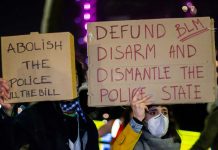
Harvard, the so-called gold standard of American higher education, just handed over the I-9 employment forms of nearly 19,000 employees to the Department of Homeland Security—begging the obvious question: what exactly has been going on behind those Ivy-covered walls, and why did it take federal muscle to get answers?
At a Glance
- DHS demanded all current and recent Harvard employee I-9 forms, expanding from an initial focus on the president’s office.
- Harvard agreed to comply, citing federal law, but sought confidentiality assurances for its employees and students.
- This rare large-scale inspection spotlights privacy and compliance tensions in elite academia.
- The move could set a precedent for similar federal scrutiny of other universities nationwide.
Federal Immigration Scrutiny Descends on Harvard
The Department of Homeland Security subpoenaed Harvard University on July 8, 2025, demanding employment eligibility documents—Form I-9s—first for staff in Massachusetts Hall, then for every employee on the payroll and anyone employed in the past year. The scale is unprecedented, targeting nearly 19,000 individuals, and it’s not just about paperwork. This is about whether a taxpayer-funded, left-leaning institution has been as diligent about employment law as it has about pushing social agendas and policing pronouns. Harvard’s administration, notorious for hiding behind layers of bureaucracy and legalese, now faces a federal microscope.
The initial focus on Massachusetts Hall, the administrative nerve center and home to the university president’s office, only adds to the intrigue. Harvard’s response? Public statements about legal compliance and a scramble to reassure employees about confidentiality—a far cry from the “nothing to hide” posture we’d expect from a university that claims the moral high ground.
Harvard’s move to comply comes after days of internal review, mass emails to staff, and a flurry of legal consultations. The university’s lawyers are busy—seeking, of all things, assurances from DHS that employee data won’t be misused or leaked. Evidently, the champions of open borders and sanctuary policies don’t like the spotlight when it’s turned on themselves.
The irony writes itself. But more than irony is at stake. The scale of this inspection—covering everyone from tenured professors to cafeteria workers—signals a shift in federal enforcement. Under the Trump administration, with immigration priorities front and center, universities can no longer expect a free pass when it comes to employment and immigration law. For years, elites looked the other way as rules were bent or ignored in the name of “diversity,” “inclusion,” and “global engagement.” Those days, it seems, are finally over.
Privacy, Compliance, and Federal Power Collide
The legal battle lines are clear. DHS has the authority—on paper—to inspect I-9 forms from any U.S. employer. But Harvard is not just any employer. With a massive international staff and a reputation to protect, the university is doing everything it can to shield sensitive records, especially for student workers who may be protected under FERPA, the federal student privacy law. It’s a high-wire act: comply with the feds and risk employee backlash, or fight back and risk a showdown with Washington. Harvard chose compliance, but not before signaling its discomfort to every employee on campus. The university’s message? Trust us, we’re doing everything we can to keep your data safe. Many aren’t buying it.
The stakes are enormous, not just for Harvard but for every university in America. If DHS can demand—and receive—every employment record from Harvard, there’s nothing stopping similar scrutiny at Yale, Stanford, or any institution with a hint of noncompliance. In the short term, Harvard faces a mountain of administrative work and a jittery workforce. In the long term, this move could force universities across the country to overhaul hiring and record-keeping practices, just to stay out of federal crosshairs.
The New Normal: Federal Enforcement in Higher Education
This is not your run-of-the-mill audit. Legal experts are calling the scope “unusual” and “unprecedented,” especially given Harvard’s high profile. It’s a shot across the bow for the entire higher education sector. For years, universities have cultivated an image of untouchability, confident that federal agencies would tread lightly for fear of bad PR. The Trump administration’s approach is different: no more sensitive zones, no more special treatment. If you’re working in America, you play by American rules—no exceptions for Ivy League elites, no safe spaces for bureaucratic stonewalling.
Privacy advocates are raising alarms, especially about the fate of student workers. If their records are swept up in this dragnet, it could trigger a showdown over FERPA and data protections. But the law is clear: national security and immigration enforcement come first. Harvard is now the test case, and how it plays out could shape federal-university relations for years to come. The message to other institutions is clear—get your house in order, or the feds will do it for you.
Sources:
Economic Times (Latest Updates)









